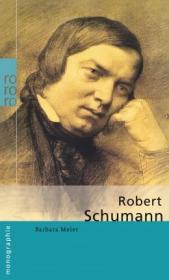
【预订】Robert Oppenheimer
书籍内容简介可联系客服查阅,查书找书开票同样可以联系客服
¥ 158 ¥ 158 九五品
库存8件
作者Ray Monk
出版社Knopf Doubleday Publishing Group
ISBN9780385722049
出版时间2014-03
装帧平装
定价158元
货号YB-86050
上书时间2024-06-29
- 最新上架
商品详情
- 品相描述:九五品
- 商品描述
-
商品简介
An unforgettable story of discovery and unimaginable destruction and a major biography of one of America’s most brilliant—and most divisive—scientists, Robert Oppenheimer: A Life Inside the Center vividly illuminates the man who would go down in history as “the father of the atomic bomb.”
“Impressive. . . . An extraordinary story.”—The New York Times Book Review
“Judicious, comprehensive and reliable. . . . By far the most thorough survey yet written of Oppenheimer’s physics."—Washington Post
Oppenheimer’s talent and drive secured him a place in the pantheon of great physicists and carried him to the laboratories where the secrets of the universe revealed themselves. But they also led him to contribute to the development of the deadliest weapon on earth, a discovery he soon came to fear. His attempts to resist the escalation of the Cold War arms race—coupled with political leanings at odds with post-war America—led many to question his loyalties, and brought down upon him the full force of McCarthyite anti-communism. Digging deeply into Oppenheimer’s past to solve the enigma of his motivations and his complex personality, Ray Monk uncovers the extraordinary, charming, tortured man—and the remarkable mind—who fundamentally reshaped the world.
这是一个关于发现和难以想象的破坏的令人难忘的故事,也是美国最杰出、最有争议的科学家之一的重要传记,罗伯特·奥本海默:中心的生活生动地阐明了这个人将作为“原子弹之父”载入史册。
“令人印象深刻。” 。 。 。一个非凡的故事。”—《纽约时报》书评
“明智、全面且可靠。 。 。 。迄今为止对奥本海默物理学最彻底的调查。”—《华盛顿邮报》
奥本海默的天赋和干劲使他在物理学万神殿中占有一席之地。伟大的物理学家把他带到了揭示宇宙秘密的实验室。但他们也引导他为地球上最致命的武器的开发做出了贡献,他很快就对这一发现感到恐惧。他试图抵制宇宙的升级。冷战时期的军备竞赛——加上与战后美国不一致的政治倾向——导致许多人质疑他的忠诚,并给他带来了麦卡锡主义反共主义的全部力量。深入挖掘奥本海默的过去,以解开奥本海默的谜团。雷·蒙克通过他的动机和复杂的性格,揭示了这个非凡、迷人、饱受折磨的男人——以及非凡的思想——从根本上重塑了世界。
作者简介
Ray Monk is the author of Ludwig Wittgenstein: The Duty of Genius, for which he was awarded the John Llewellyn Rhys Prize and the Duff Cooper Prize, and a two-volume biography of Bertrand Russell. He is Professor of Philosophy at the University of Southampton.
精彩内容
Excerpted from the Hardcover edition
1
“Amerika, du hast es besser ”:
Oppenheimer’s German Jewish Background
J. Robert Oppenheimer, his friend Isidor Rabi once remarked, was “a man who was put together of many bright shining splinters,” who “never got to be an integrated personality.” What prevented Oppenheimer from being fully integrated, Rabi thought, was his denial of a centrally important part of himself: his Jewishness. As the physicist Felix Bloch, echoing Rabi, once put it, Oppenheimer “tried to act as if he were not a Jew and succeeded well because he was a good actor.” And, because he was always acting (“you carried on a charade with him. He lived a charade,” Rabi once remarked), he lost sight of who he really was. Oppenheimer had an impressive and wide-ranging collection of talents, abilities and personal characteristics, but where the central, united core of his personality ought to have been, Rabi thought, there was a gap and so there was nothing to hold those “bright shining splinters” together. “I understood his problem,” Rabi said, and, when asked what that problem was, replied simply: “Identity.”
Rabi spoke as someone who, by virtue of his background, intelligence and education, was well placed to understand Oppenheimer’s “problem.” He and Oppenheimer had a great deal in common: they were roughly the same age (Rabi was six years older), they were both theoretical physicists, were both brought up in New York City and were both descended from European Jewish families. Behind this last similarity, however, lay a fundamental difference. Rabi was proud of his Jewish inheritance and happy to define himself in terms of it. Though he had no religious beliefs, and never prayed, he once said that when he saw Orthodox Jews at prayer, the thought that came into his mind was: “These are my people.”
No such thought could have entered Oppenheimer’s mind, no matter who he was looking at. There was no group to whom he could point and say, “These are my people,” and not just because of his ambivalence about his Jewish background. It was also because that background itself, regardless of Oppenheimer’s feelings about it, could not have provided him with the sense of belonging and, therefore, the sense of identity that Rabi thought was missing in him. Rabi, despite his lack of religious beliefs, was Jewish in a fairly straightforward and unambiguous way; the Jews simply were “his people.” Theirs was the community to which he belonged. One cannot say the same about Oppenheimer. The sense in which he was Jewish, the sense in which he did--and did not--come from, and belong to, a Jewish community, is far more complicated and, as Rabi has perceptively noted, crucial in understanding the fragility of his sense of identity.
For an understanding of the elusive nature of Oppenheimer’s Jewishness, the contrast between his family background and Rabi’s is instructive. Despite their many and important similarities, and despite the fact that they grew up within a few miles of each other, Rabi and Oppenheimer were born into and brought up in families that were culturally worlds apart. Rabi was a “Polish Jew.” Born in Galicia to a poor, Yiddish-speaking family of Orthodox Jews, he came to New York as an infant and was raised, first in the crowded slums of the Lower East Side and then in a tiny apartment in Brooklyn. Oppenheimer was born not in Europe, but in New York City, to a wealthy family that had abandoned its Jewish faith and traditions a generation earlier. The bustling and crowded “Jewish Ghetto” of the Lower East Side would have seemed utterly alien to the young Oppenheimer, who was brought up in an enormous luxury apartment in the genteel Upper West Side. The family had never spoken Yiddish, and, though German was his father’s first language, it was never spoken at home.
And yet, despite regarding himself as neither German nor Jewish, Oppenheimer was seen, by Jews and non-Jews alike, as a “German Jew.” In New York in the early twentieth century the central division among the Jewish community was between, on the one hand, the German Jews and, on the other, the Polish and Russian Jews--the differences between the two groups accurately mirrored by the differences between Oppenheimer and Rabi. The German Jews, sometimes called “Uptown Jews,” were on the whole wealthier, more assimilated and less religious than their Polish and Russian counterparts, to whom they were notoriously condescending. At the time of Oppenheimer’s birth in 1904 there were more Polish and Russian Jews in New York than German Jews, but the Germans assumed leadership of the Jewish community and took it upon themselves to help “Americanize” the Russians and Poles, who reacted with resentment at what they saw as a dismissal of their religion and their customs.
What Rabi called Oppenheimer’s problem--the problem of identity--was, in fact, a problem for the entire American Jewish community, perhaps its central problem. Certainly it was the issue at the heart of the tension between the two groups of Jews in New York City. For the Russian and Polish Jews, their sense of identity was bound up with their Jewishness: their Orthodox religious beliefs, their Yiddish language and their Jewish culture and traditions. That sense of identity, that culture, however, had been abandoned by the German Jews before they even came to America.
The mass migration of German Jews to America that occurred in the mid-nineteenth century was intimately bound up with their earlier abandonment of the traditional trappings of Jewish identity. Haskalah, the Jewish Enlightenment of the late eighteenth century, was an essentially German movement, its prophet being the great Prussian Jewish thinker Moses Mendelssohn. Haskalah, which led in turn to that other essentially German movement, Reform Judaism, encouraged Jews to, literally and metaphorically, leave the ghettos in which they had been confined and embrace the modernizing ideas of the wider Western European Enlightenment. This meant using German rather than Hebrew as the language of worship, abandoning traditions and customs that served to isolate Jews from the rest of society, and reforming Jewish education so that it prepared people for the world at large rather than schooling them in a separate culture. The hope that inspired these changes was that, in return for abandoning those aspects of their culture that identified them as radically different from others, the Jews would receive from the gentile world a lifting of the discriminatory laws that affected almost every aspect of their lives, and a full acceptance as members of society with the same legal, financial and political rights as other citizens. Thus fully assimilated, Jews would no longer think of themselves as a separate race or nation, but rather as adherents of a religion. Their nationality would be German, and they would be not a bit less German for worshipping in a synagogue rather than a church.
It was the dashing of this hope that persuaded hundreds of thousands of German Jews in the middle decades of the nineteenth century to turn their backs on their home country and look to America--a country founded upon the proposition that the equality of all men and the inalienability of the right to life, liberty and the pursuit of happiness were self-
相关推荐
-

【预订】Robert Oppenheimer
九五品成都
¥ 158.00
-

【预订】Robert Oppenheimer
九五品济南
¥ 158.00
-

【预订】Robert Oppenheimer
九五品广州
¥ 158.00
-

【预订】Robert Oppenheimer
九五品广州
¥ 158.00
-

预订 Robert Louis Stevenson,英文原版
九五品西安
¥ 298.00
-

【预订】Robert Frost: Sixteen Poems to Learn by Heart
九五品成都
¥ 188.00
-

【预订】Robert Frost: Sixteen Poems to Learn by Heart
九五品济南
¥ 188.00
-

Opp英汉对照
八五品郑州
¥ 99.80
-

opp创业说明书
八五品南阳
¥ 20.00
-

预订 Robert Schumann 德国音乐家罗伯特·舒曼,德文原版
九五品西安
¥ 160.00
— 没有更多了 —












以下为对购买帮助不大的评价